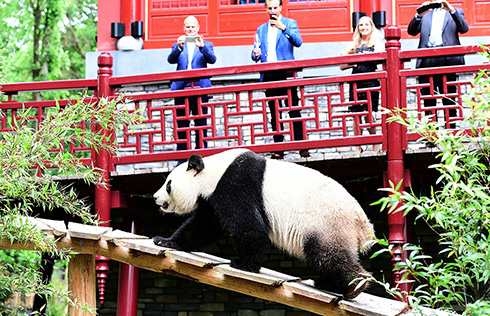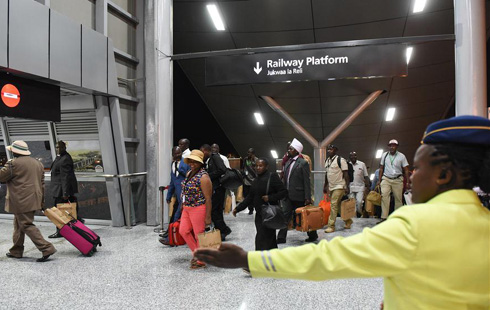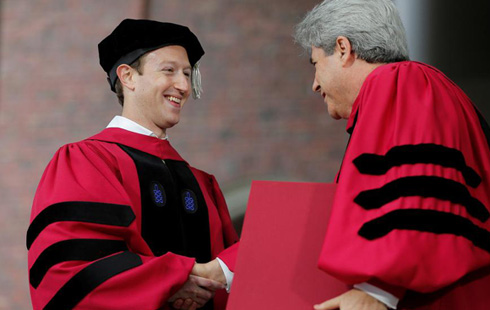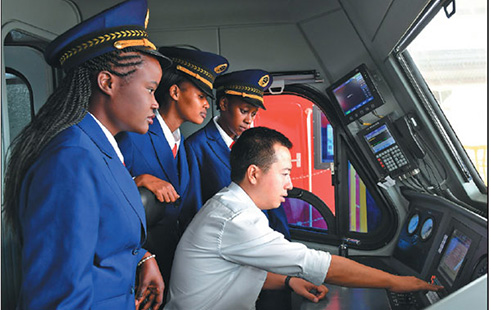Education should be lifelong, and so should the chance to dream
The month of May is more enlightening than the others of the year: It's a time when millions of young men and women bid farewell to their alma maters and get ready for the next chapter of their lives; it's a time that iconic and pioneering people are invited to talk at commencement ceremonies and try to impress and influence future movers and shakers.

Among the many speakers addressing graduates at universities such as Columbia, UC-Berkeley, Maryland and Harvard, founder and CEO of Facebook Mark Zuckerberg has provoked thoughts and created social buzz around his address on May 25 at Harvard's 366th commencement.
Beyond the billionaire's role in social media and connecting people around the world, the Harvard dropout told his fellow alumni that, "I'm here to tell you finding your purpose isn't enough. The challenge for our generation is creating a world where everyone has a sense of purpose."
He went on to say that "purpose is that sense that we are part of something bigger than ourselves, that we are needed, that we have something better ahead to work for. Purpose is what creates true happiness."
Coincidentally, a group of college graduates from Renmin University, one of the most prestigious higher-learning institutions in China, are fiercely debating the purpose of life and education.
In early May, local media published a profile story depicting the ups and downs of Wu Jihong, 43, who was enrolled at Renmin in 1994, studying information management.
Now a poverty-stricken rural woman, she is a mom of six living on social assistance in an impoverished mountainous region of Jiangxi province.
Upon her graduation in 1998, Wu began job-hunting in Beijing, competing against approximately 1 million graduates the same year. She managed to pass the national civil servants' entrance exam but failed in her interview.
She then applied to several management positions in the capital city and suburban towns, with no luck. She finally left Beijing for familiar places such as Guangdong and Jiangxi and tried a few temporary positions.
In the past 19 years, Wu married twice, ended up living with a farmer in her remote hometown and gave birth to five children in her second marriage.
The news, besides its description of Wu's everyday struggles and her heart-wrenching challenges to feed her children, ignited a heated discussion among people from all walks of life in China.
Some said an outdated education system should be blamed for its disconnect with society, teaching something not applicable in the real life. Some said Wu herself should take full responsibility for her own life. "She seemed to stop dreaming at some point," one said.
Several weeks ago, Wu's teachers and classmates at Renmin University visited her, offering her assistance on updating her job-hunting and interviewing skills.
What has gone wrong? People around Wu are asking.
Maybe Zuckerberg knows the answer.
"When our parents graduated, purpose reliably came from your job, your church, your community," he said. "But today, technology and automation are eliminating many jobs. Membership in communities is declining. Many people feel disconnected and depressed and are trying to fill a void," he said.
"Change starts locally. Even global changes start small - with people like us. In our generation, the struggle of whether we connect more, whether we achieve our biggest opportunities, comes down to this - your ability to build communities and create a world where every single person has a sense of purpose," he added.
Contact the writer at junechang@chinadailyusa.com




















